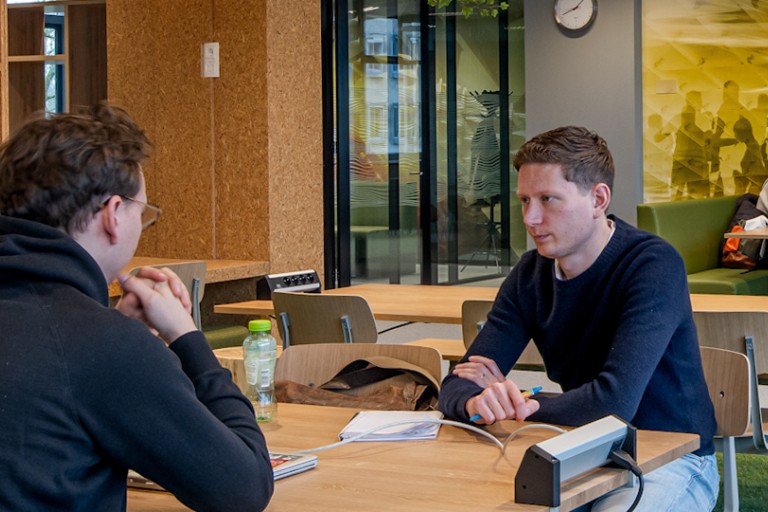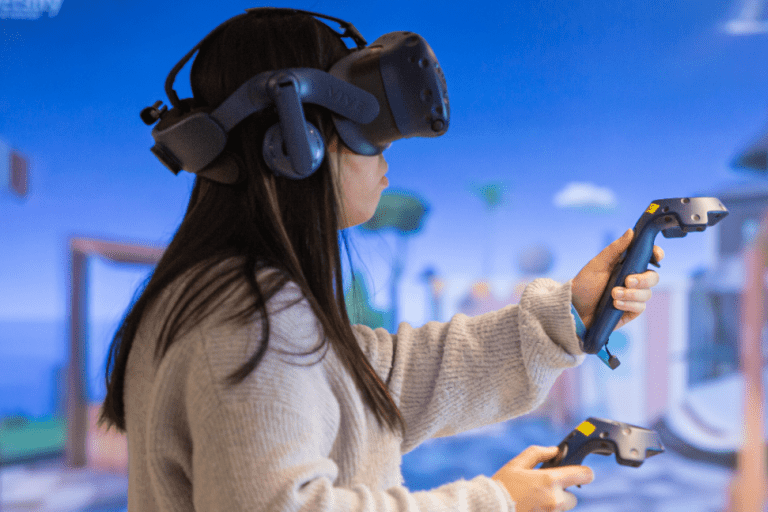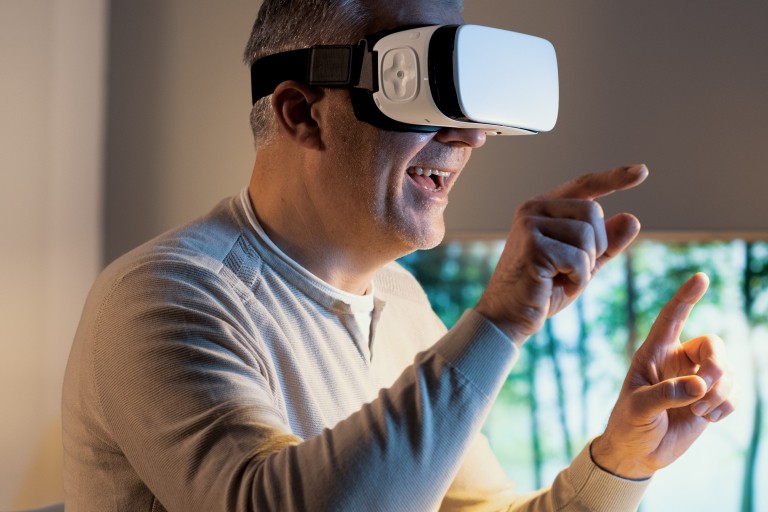As people increasingly interact within digital realities, understanding their potential allows us to contribute to using these digital realities for improved governance and management in addressing societal challenges.
At BUas we are at the forefront of exploring Digital Realities, which include technologies like Virtual Reality (VR), Augmented Reality (AR) and other interactive technologies. These advancements are transforming various sectors, including leisure, tourism, events, logistics, and health.
Digital Realities research & design
Digital Realities encompass a range of technologies that enhance our perception of the world by blending digital and physical experiences. We focus on creating, using, and experiencing Digital Realities in ways that are sensible, meaningful and responsible. This involves developing smart tools, methodologies, and field labs for effective and efficient design and production.
The research programme aims to contribute to the global discussion on the digital society from the perspective of advanced game and media technologies. Digital Realities are intelligent, interactive and immersive digital environments that seamlessly integrate entertainment or serious design approaches, data, AI/machine learning, and/or simulations, with visualisations.
Societal challenges
Digital Realities are crucial in maintaining and innovating social connections and business operations. The Covid-19 pandemic further highlighted this importance. However, there is still a need for better concepts, tools, and methods to fully harness the potential of Digital Realities. Our challenge is to integrate Digital Realities across different sectors and ensure that innovations in one area can be transferred and reused in others.
Examples of disruptive Digital Realities innovations can be seen in many BUas domains, including digital humans in entertainment and service industries; virtual museums and music festivals in leisure, learning, and culture domains; and digital twins in the decision-making and spatial planning domain, e.g., maritime spatial planning, urban planning, and logistics.
Research goals and questions within the ‘Digital Realities’ theme
Our primary research goals include:
- Developing cross-sectoral theories and concepts for Digital Realities.
- Designing and engineering Digital Realities with common approaches and smart tools.
- Enhancing user interaction in Digital Realities through innovative methods and tools.
- Measuring and evaluating Digital Realities experiences to ensure they are effective and comparable to real-life events.
- Addressing ethical and societal impacts of Digital Realities.
Some of our key research questions are:
- Concepts and theories: What are Digital Realities? How can they be conceptualised and studied, leading to better definitions, taxonomies and methods?
- Design and engineering: How are Digital Realities designed, and how can they benefit from common approaches and smart tools? What (game) architectures are needed to deliver Digital Realities products and services more cost-effectively across various sectors?
- Use cases and user interaction: How can we effectively and efficiently generate highly naturalistic interaction between people or with virtual humans?
- Measurement and evaluation: How do we observe interaction, and how does this interaction compare to real-life events?
- Ethics and societal impact: How do Digital Realities contribute to learning or inter-organisational and systems performance, and how can this be measured?
- How do innovation ecosystems emerge around Digital Realities, and how do they work? What are the lessons to be learned in terms of their success?
Conclusion
BUas R&D on Digital Realities aims to create high-quality, sustainable digital experiences that enhance well-being and social inclusion. By integrating knowledge across various domains, we aim to develop innovative solutions that have a positive impact on society.
More about research

Professorships
Find out more about our professorships and R&D projects or get in touch with our experts.

Centres of expertise
BUas collaborates with partners all over the world. We develop research, share our knowledge and co-create to shape a better world.

